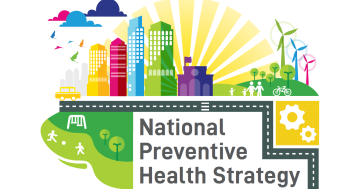Ian Horswill* says a new report shows men and women have very different ideas about what are the best leadership qualities for those in health care.

Photo: Sasin Tipchai
Men and women think very differently about what qualities leaders should have in the healthcare industry, according to a new report by management consultants Oliver Wyman.
The authors said the results revealed one major reason for the lack of women in healthcare leadership positions, despite women representing 80 per cent of buying decisions and 65 per cent of the workforce.
Senior and junior men and women across the healthcare industry were asked to pick attributes such as communication skills, commitment, vision and emotional intelligence to best describe leaders.
Results showed that women value an emotionally intelligent, communicative leader while men value a commanding leader, with 60 per cent of women valuing emotional intelligence in a leader – compared to only 35 per cent of men.
The ‘Women as the Heartbeat of Healthcare’ report, which involved Zogby Analytics, highlighted several other key findings:
- A majority (66 per cent) of women believe they personally have a high commitment to advancing women but only 27 per cent believe their organisation does.
- Only 50 per cent of employees find informal mentorship effective and 32 per cent find formal sponsorships effective in advancing women in leadership positions.
- Thirty-nine per cent of men feel complete support to improve the representation of women in leadership; while only 21 per cent of senior women feel the same.
“When considering women for leadership roles, both genders must be more open to how different leadership styles propel more men forward in their careers,” said Helen Leis, Oliver Wyman partner.
“It’s also a time to consider that diversity of perspectives and ideas is essential to innovation.”
“With more transparency on what leadership attributes healthcare organisations are seeking, the next step needs to be making programs and support systems to advance women which are more aligned and more effective.”
“There’s clearly room for improvement.”
The Oliver Wyman report provides three key recommendations to tackle the ‘invisible’ barriers to have more women in healthcare leadership including:
- Commit to mentorships and sponsorships that engage employees in new ways and build natural connections. Organisations also need to measure processes that enable affinity.
- Provide senior-level support to those personally invested in diversity.
- Define what leadership attributes your organisation values and recognise genders disagree about what qualifies as ‘good’ leadership.
The report is the second in a series focused on women in healthcare leadership.
The initial report, titled ‘Women in Healthcare Leadership’, was launched in January and identified five unintended leadership barriers women face when trying to move to the C-suite.
The new report was taken from a survey of 529 people taken in June and July 2019 across a variety of healthcare organisations, including health insurance companies, healthcare providers, pharmaceutical manufacturers, health tech companies, and industry associations.
* Ian Horswill is a Senior News Producer for The CEO Magazine.
This article first appeared at news.theceomagazine.com











